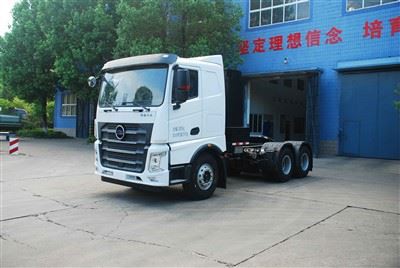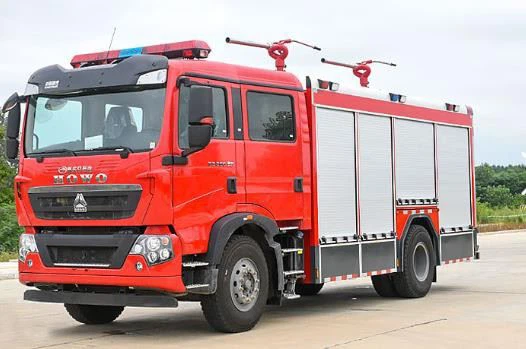In today’s world, effective waste management is integral to maintaining clean and healthy environments. Flusher trucks play a vital role in this process. These specialized vehicles are equipped to manage the waste generated by various sectors, including municipal, industrial, and commercial facilities. This article will dive deep into flusher trucks, their functions, types, features, maintenance, and everything else you need to know about these essential waste management machines.
What is a Flusher Truck?
A flusher truck is a specialized vehicle designed primarily for liquid waste collection and transportation. They are often utilized to clean sewage systems, storm drains, and septic tanks, ensuring that waste is dealt with efficiently and safely.
How Flusher Trucks Work
Flusher trucks operate using a combination of high-pressure water systems and vacuum technology. The process typically includes the following steps:
- Water is pumped from a tank and pressurized to create a powerful jet.
- This high-pressure water is directed into the waste collection area, breaking down and dislodging any build-up.
- The dislodged waste is then vacuumed into the truck’s holding tank for transportation.
The Importance of Flusher Trucks in Waste Management
Environmental Protection
Flusher trucks contribute significantly to environmental protection by ensuring that waste is managed appropriately, preventing harmful pollutants from entering water systems.
Health and Safety
Regular cleaning of waste collection systems minimizes the risks of blockages that can lead to overflows, creating public health hazards. Flusher trucks ensure these systems function correctly.
Community Aesthetics
Maintaining clean public spaces is essential for community aesthetics and public health. Flusher trucks help clean and maintain streets, ensuring they remain presentable and safe for the public.
Types of Flusher Trucks
1. Conventional Flusher Trucks
Conventional flusher trucks usually have a large tank for holding liquid waste and a high-pressure pump for cleaning. They are widely used in urban areas for routine maintenance.
2. Vacuum Flusher Trucks
These trucks incorporate powerful vacuum systems to remove waste efficiently. They are often used for septic tank emptying and cleaning drainages.
3. Combination Trucks
Combination trucks merge flusher and vacuum technologies, allowing them to handle a wider range of waste types. They can flush and vacuum simultaneously, making them highly efficient.
4. Portable Flusher Trucks
As the name suggests, portable flusher trucks are designed for maneuverability. They are ideal for hard-to-reach areas or where larger trucks cannot operate effectively.
Key Features of Flusher Trucks
Tank Capacity
The tank capacity of flusher trucks varies widely, ranging from 500 to over 3,000 gallons, depending on the type and purpose of the truck. Selection should depend on the volume of waste expected in different applications.
High-Pressure Water System

Most flusher trucks are equipped with powerful high-pressure water systems that can deliver pressure ranging from 1,000 to 3,000 PSI. This system is crucial for effectively dislodging waste.
Vacuum System
The vacuum systems in flusher trucks typically use multi-stage pumps to ensure efficient waste collection. They can create suction powerful enough to lift various waste types effectively.
Control Systems

Modern flusher trucks come equipped with advanced control systems allowing operators to manage both the vacuum and the water pressure from the driver’s seat. This feature enhances efficiency and user-friendliness.
Applications of Flusher Trucks
Municipal Services
Municipalities use flusher trucks to maintain sewer systems, removing blockages and cleaning storm drains as part of regular maintenance activities.
Industrial Applications
In industrial settings, flusher trucks are used for cleaning large tanks, pits, and wastewater treatment facilities, ensuring compliance with safety regulations.
Commercial Use
Businesses utilize flusher trucks to maintain cleanliness in parking lots, driveways, and other external areas, maintaining a welcoming environment for customers.
Septic System Management
Flusher trucks are integral to the maintenance of septic systems, allowing for the regular emptying and cleaning of septic tanks and lines.
Maintenance Tips for Flusher Trucks
Regular Inspections
Perform routine inspections of all systems, focusing on high-pressure water lines, vacuum pumps, and tanks to ensure everything is functioning correctly.
Fluid Changes
Flusher trucks require regular oil, hydraulic fluid, and tank cleaning to function optimally. Ensure these fluids are replaced according to the manufacturer’s schedule.
Desludging the Tank
It is critical to desludge the tanks regularly to prevent buildup and ensure efficiency. This process involves completely emptying the tank and cleaning it thoroughly.
Tire Maintenance
Given that flusher trucks often operate in various terrains, ensure that tire pressure and tread depth are regularly checked to maintain safety and efficiency.
Choosing the Right Flusher Truck
When selecting a flusher truck, consider the following factors:
- Tank Size: Evaluate the typical volume of waste you expect to collect.
- Type of Flusher: Determine whether a conventional, vacuum, combination, or portable flusher is most suited to your needs.
- Budget: Consider both the purchase price and ongoing operating costs.
- Brand Reputation: Research brands known for quality and reliability in waste management equipment.
Cost of Flusher Trucks
The cost of flusher trucks can vary widely depending on various factors, including:
| Type of Truck | Price Range |
|---|---|
| Conventional Flusher Truck | $100,000 – $250,000 |
| Vacuum Flusher Truck | $150,000 – $300,000 |
| Combination Truck | $200,000 – $400,000 |
| Portable Flusher Truck | $50,000 – $150,000 |
Maintenance costs should also be factored into the overall expense, as they can accumulate over time.
FAQ About Flusher Trucks

1. What is the primary purpose of a flusher truck?
The primary purpose of a flusher truck is to clean and maintain waste collection systems, such as sewage and storm drainage systems, by removing waste and debris.
2. How often should flusher trucks be used?
Usage frequency depends on the level of waste produced in the area being serviced. Municipalities may run them daily, whereas commercial operations could schedule maintenance bi-weekly or monthly.
3. Are flusher trucks environmentally friendly?
When managed correctly, flusher trucks can help reduce environmental pollution by ensuring waste is disposed of safely and efficiently.
4. What training is required to operate a flusher truck?
Operators typically need a commercial driver’s license (CDL) and should be trained in the vehicle’s mechanical systems, safety procedures, and waste management protocols.
5. Can flusher trucks operate in all weather conditions?
Yes, flusher trucks are designed to operate in various weather conditions. However, operators should exercise caution during severe weather to ensure safety.
6. What maintenance is necessary for flusher trucks?
Regular inspections, fluid changes, tank desludging, and tire maintenance are essential for keeping flusher trucks in optimal working condition.